In 2020, The Gambia witnessed a series of key constitutional developments. These include the stalling of the constitution-making process, challenges to the constitutional validity of immunity from jurisdiction, and efforts geared towards better protection of fundamental rights and freedoms. Following is an overview of some of these developments.
The future of the Gambian Constitution
In 2020, The Gambia witnessed the stalling of the constitutional replacement project. On 22 September 2020, the National Assembly rejected the proposed Constitution Promulgation Bill, 2020 which was aimed at promulgating a new constitution and repealing the 1997 Constitution. Twenty-three lawmakers in the National Assembly voted against the Bill, while thirty-one supported it. This was, however, not a big enough majority to meet the threshold requirement of three-quarters of members needed to proceed to the Third Reading stage for effect constitutional change. The Draft Constitution could, therefore, not be put to a referendum. As noted elsewhere on why the Bill did not pass, partisanship and extreme political polarization killed the draft. There was not enough proactive engagement in consensus building by all political actors.
In response to the growing local and international calls for a new constitution, in October the Cabinet had asked the Minister of Justice to initiate a new dialogue process among stakeholders to revive the constitution building process again. Since then, there have been engagements with political parties and civil society with a view of bringing about consensus on the contentious issues of the final draft. Given the highly politicized nature of the contentious issues, there is a need for proactive engagement in consensus building by all political actors. A new constitution is very much dependent on this. Institutionalized platforms of inter-party dialogue such as the Inter-Party Committee (IPC) are vital and could be better utilized for trust-building and consensus building on contentious constitutional questions and issues.
As posited elsewhere, amending the 1997 Constitution or going back to the drawing board by having the Constitutional Review Commission (CRC) restart the drafting process afresh would be challenging as buy-in and political legitimacy would be difficult to attain. An alternative option, drawing from the Kenyan case study, would be to enact a new law that focuses mainly on providing a mechanism for consensus-building on the contentious issues that arose in the review process of the 2020 Draft Constitution. Section 5 of the Constitution of Kenya Review Act, 2008 [Revised 2009] established the following mechanisms that would be involved in the reform process: Committee of Experts (CoE), the relevant Parliamentary Select Committee, the National Assembly, and a national referendum. These were the following steps:
First, section 23(b) of the Kenya Review Act provided that the CoE would identify the issues already agreed upon in the existing draft constitutions and the issues which are contentious or not agreed upon in the existing draft constitution. Then upon identifying issues that were contentious, section 30 (2) of the Review Act required the CoE to invite representations from the public, interest groups and experts on contentious issues to resolve them and prepare a harmonized draft constitution. Such a report and draft would be published to incorporate the views of the public.
Thereafter, the draft constitution goes to the Parliamentary Select Committee (PSC) for consensus building on the contentious issues as determined by the CoE. The PSC, upon deliberation, resubmits the draft Constitution and the report presented to the CoE, together with the recommendations agreed upon. The CoE then revises the draft constitution taking into account the achieved consensus. The CoE then submits the revised draft Constitution and its final report to the PSC. The PSC tables the report and draft constitution before the National Assembly. If the National Assembly approves the draft constitution without amendment, it is submitted to the Attorney-General for publication and then followed by a referendum.
Whatever path The Gambia eventually takes, based on key lessons learned in the rejection of the 2020 Draft Constitution, there is a need for coherent and rigorous safeguards against partisan manipulation and limiting the impact of partisan interests over national interest. Ultimately, the constitution-making process should be an inclusive one that ‘strengthens national unity and a sense of common, national identity.’
Immunity versus human rights: The Yankuba Touray case
While a State has jurisdiction over all persons within its territory and over acts that take place within, in certain situations, it would not exercise this territorial jurisdiction. The issue of immunity from jurisdiction is the key focus in a recent ongoing case. In the State v Yankuba Touray case, the Supreme Court is to determine whether the accused person (Yankuba) is entitled to constitutional immunity from prosecution of the murder of Ousman Koro Ceesay pursuant to Paragraph 13 (1), (2), (3), (4) and (5) of the Second Schedule of the 1997 Constitution. Yankuba, a former member of the then Armed Forces Provisional Ruling Council (AFPRC) which overthrew the Jawara government in 1994 and suspended the 1970 Constitution, was charged by the state of murder during the transition period. The one-count murder indictment is pursuant to section 187 of the Criminal Code. The accused pleaded not guilty to the charge, consequently contending that the provisions on immunity as provided in the Second Schedule in the 1997 Constitution grants him blanket immunity from prosecution.
There is currently an active exchange of opinions regarding immunity and its influence on constitutional development in The Gambia. As a result, amicus briefs have been submitted to the Supreme Court. For instance to aid the Court, an amicus brief was filed by a group of lawyers providing information to the Supreme Court relating to national, regional and international law on the issue of immunity from criminal jurisdiction. This was done in light of human rights standards on the right to life and the obligation of the state to exercise due diligence in investigating and prosecuting perpetrators. The right to life imposes a duty on the State to protect the lives of its citizens.
Amicus curiae procedure
Amicus curiae, a well-established concept in law, particularly in common law jurisdictions, has been defined as relating to third parties, bystanders, who make suggestions on points of law or of fact for the information of the adjudicators to a case without themselves having an interest in the cause. Amicus curiae can assist adjudicators in their deliberations, as well as contribute to the litigation discourse. In the Yankuba case, the submitted amicus briefs are vital in helping the Court determine the potential impact of the jurisprudence that would emanate from this case, vis a vis on the rule of law bumpy road.
Currently, there are no laid down rules that stipulate that courts may allow amicus curiae briefs on cases. However, from the recent submission of the briefs, it is posited that the courts can allow third parties to submit amicus briefs and to make oral presentations when it deems that necessary. Given that there might likely be more cases attracting amicus filings in the future, it is clear that there is a need for procedural rules governing amicus
On the conflict between human rights and immunity, it is yet to be seen what the decision of the Supreme Court will be. Such a determination would have a great impact not only on the transitional justice process but also on whether it would be in line with the position that recognizes that certain human rights norms when violated would constitute a grave crime, thereby prevailing over immunity.
Pursuing law reforms
Sweeping legal and institutional reforms, including repeals or amendments of several laws from the Jammeh era that eroded human rights, are ongoing. Some of the legislation that has been tabled before the National Assembly and under review by relevant committees focus on enhancing democratic governance and promotion of transparency and accountability including the Access to Information Bill, 2019 and the Anti-Corruption Bill, 2019. However, others yet to be reviewed include the Public Order Act and media-related laws such as the Newspaper Act, the Telegram Act and the Official Secrets Act. An attempt was made to place the Media Services Bill earlier this year, but which was dropped after a public outcry that it was antithetical to the free press.
Other law reform efforts focus on enhancing protection for marginalized groups including the Persons with Disabilities Bill, 2020 and several bills (e.g. Domestic Violence Amendment Bill, Labour Amendment Bill and the Women’s Amendment Bill) geared towards the protection of women’s rights in The Gambia. Further consideration of these bills is foreseen in 2021.
In addition, a comprehensive review of the Criminal Code and Criminal Procedure was done in late 2019 as part of efforts to reform the criminal justice system post-Jammeh. Subsequently, a Criminal Offences Bill, 2020 was drafted. Some key changes include the repeal of provisions on sedition, criminal defamation for enhancing freedom of expression; removal of the death penalty for capital or any other offences; greater flexibility for bail; introduction of a system of parole; plea bargaining and other non-custodial sentences such as community service.
However, there have been concerns that the draft bill contains provisions that limit citizens’ political rights and shields the executive from public scrutiny. The bill was withdrawn from the National Assembly and is yet to be re-tabled. A stand-alone legislation on the domestic criminalization of torture is also expected to be introduced.
Enhancing political participation and fair elections
Review of the Elections Act has already kickstarted in 2020. The Gambia’s Inter-Party Committee (IPC) has recently concluded a two-day workshop in November 2020 focused on the draft bill. An Election Bill is subsequently envisaged to be tabled before the National Assembly in 2021. This Bill is envisioned to expand political pluralism and enhance electoral processes in The Gambia. While the role of political actors is critical in this process, there need to be opportunities created for citizen participation and awareness about the electoral reform process.
2021 Prospects
Constitutional reform efforts are envisaged to continue in 2021 including the revitalization of the constitution making project. Given the current political climate in the Gambia, coming from 22 years of dictatorship, law reform is essential in ensuring an enabling legal framework and environment for democratic governance and promotion of transparency and accountability.
Going forward in 2021, the State needs to take a leading role in re-establishing respect for human life and dignity. In addition, there is a need for transparent and participatory approaches in the law-making process. Inclusion and participation of civil society including the media is vital in efforts to consolidate democracy and build a new culture of constitutionalism in The Gambia.
Note: This post is based on the ‘Constitutional law developments in The Gambia: 2020’ report recently published by Law Hub Gambia, available here: https://www.lawhubgambia.com/latest-news/publication-constitutional-developments-in-2020-gambia.
About the Author:
Dr Satang Nabaneh is a legal scholar with expertise in human rights, comparative constitutional law and democratization. Her teaching and research focus on international human rights law and monitoring mechanisms; human rights in Africa, with particular focus on women’s rights; democratization in Africa and Gambian constitutional law.
She is also the founder and director of Law Hub Gambia, a legal resources and knowledge institute providing an open-access source of legal information from The Gambia. Dr. Nabaneh is a Post-doctoral Fellow at the Centre for Human Rights, Faculty of Law, University of Pretoria.


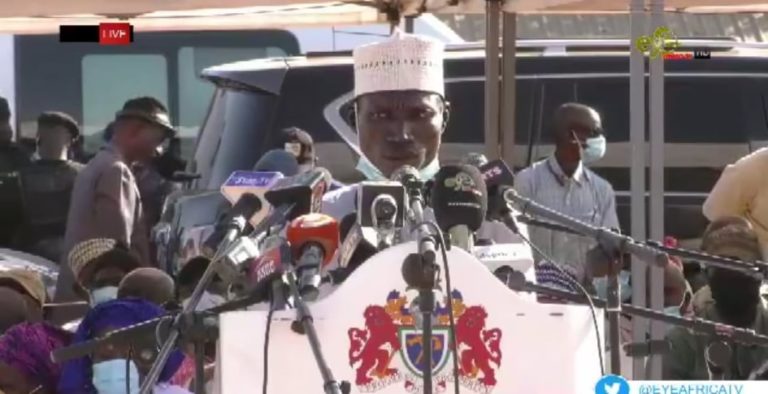
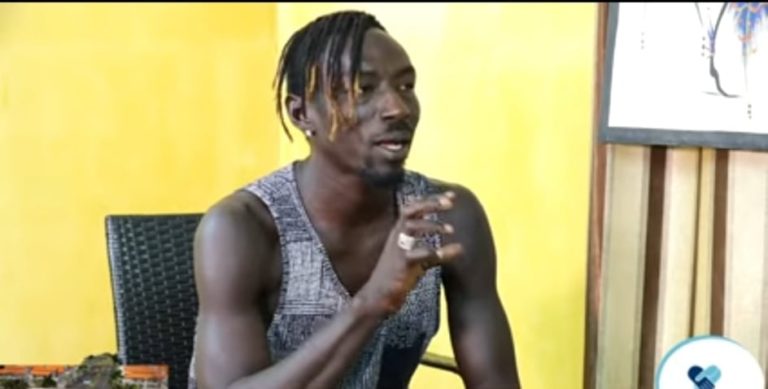
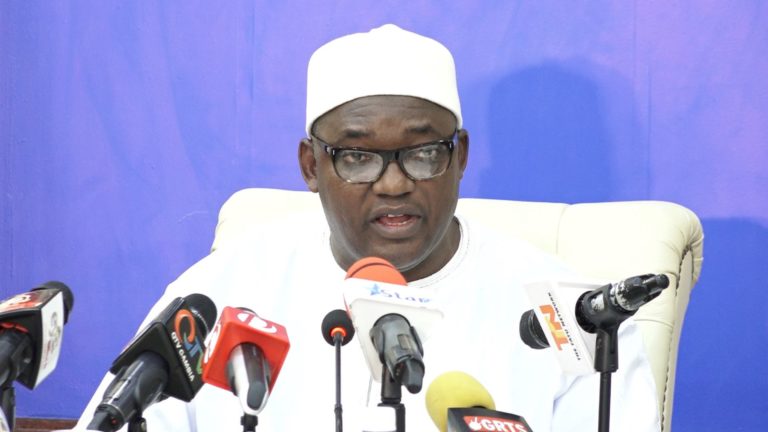
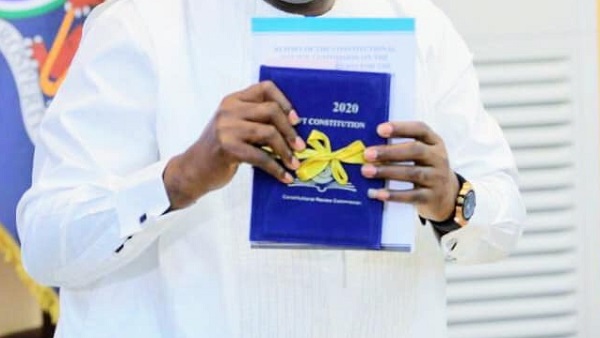
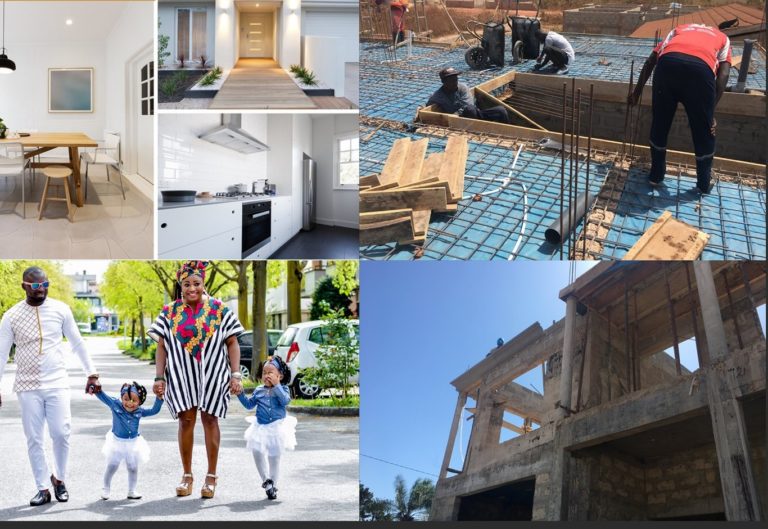
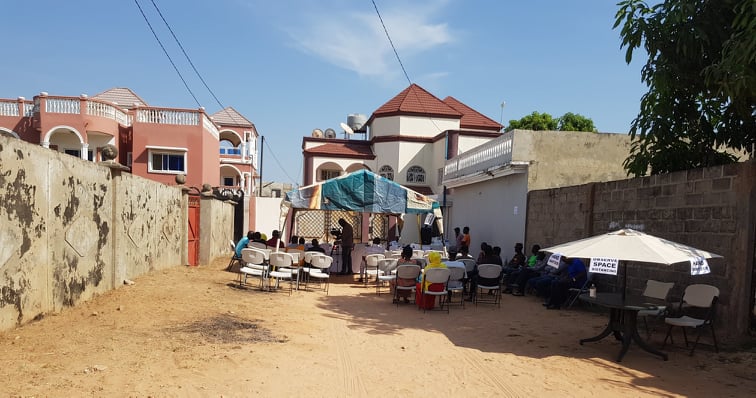

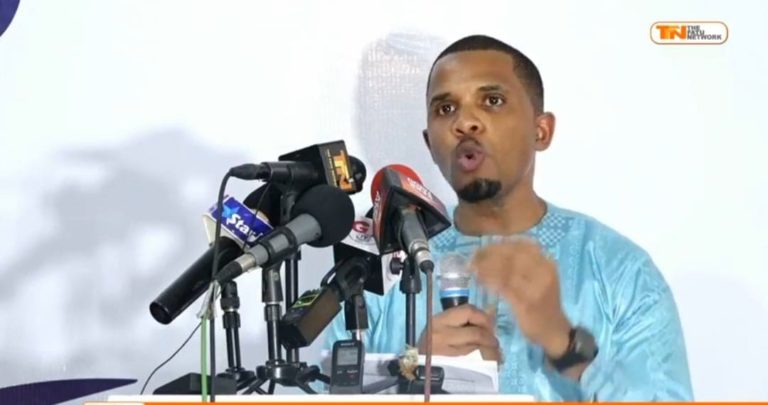
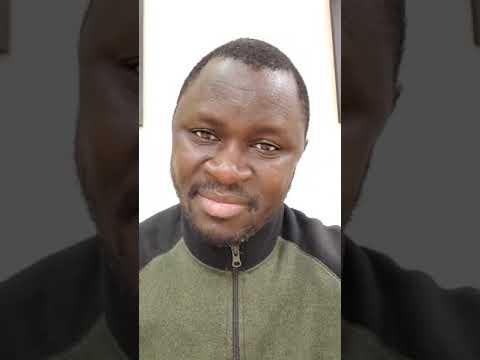
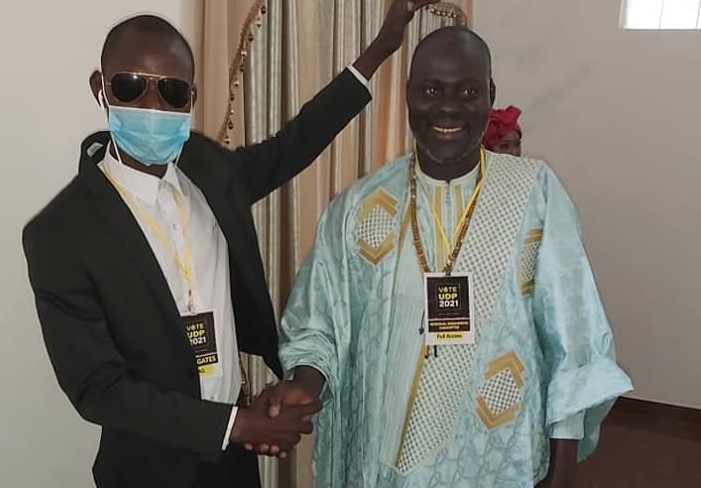
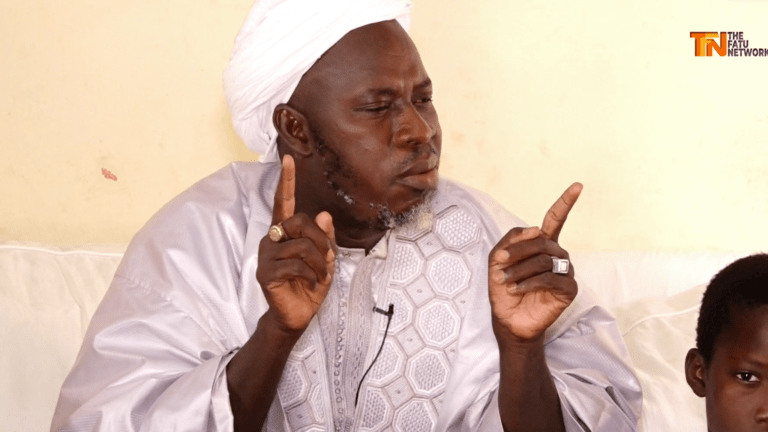

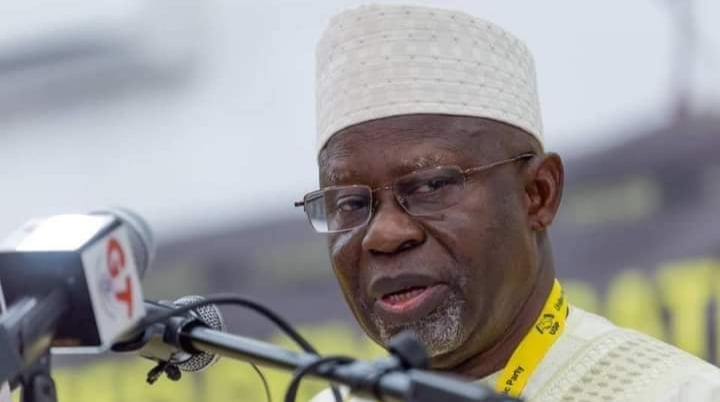
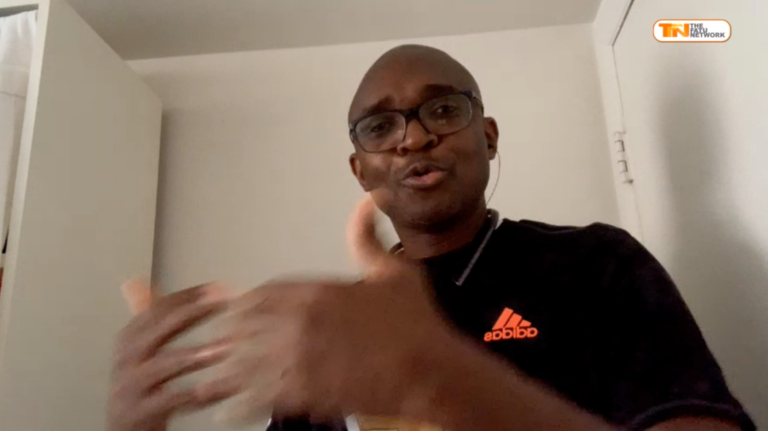
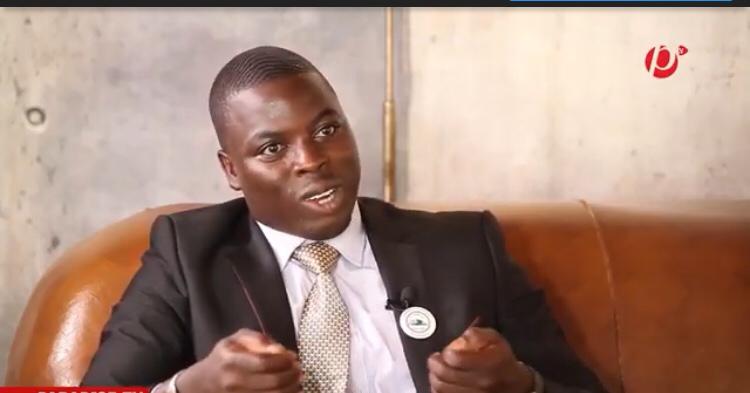
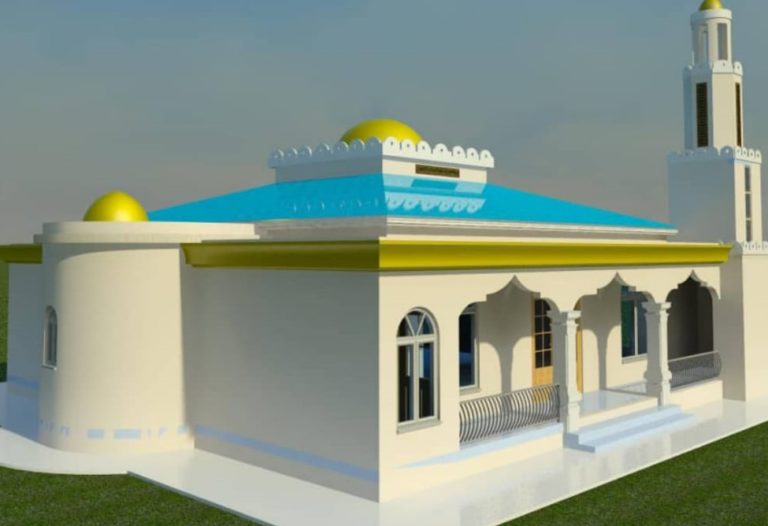
Constitutional law developments in The Gambia: 2020
In 2020, The Gambia witnessed a series of key constitutional developments. These include the stalling of the constitution-making process, challenges to the constitutional validity of immunity from jurisdiction, and efforts geared towards better protection of fundamental rights and freedoms. Following is an overview of some of these developments.
The future of the Gambian Constitution
In 2020, The Gambia witnessed the stalling of the constitutional replacement project. On 22 September 2020, the National Assembly rejected the proposed Constitution Promulgation Bill, 2020 which was aimed at promulgating a new constitution and repealing the 1997 Constitution. Twenty-three lawmakers in the National Assembly voted against the Bill, while thirty-one supported it. This was, however, not a big enough majority to meet the threshold requirement of three-quarters of members needed to proceed to the Third Reading stage for effect constitutional change. The Draft Constitution could, therefore, not be put to a referendum. As noted elsewhere on why the Bill did not pass, partisanship and extreme political polarization killed the draft. There was not enough proactive engagement in consensus building by all political actors.
In response to the growing local and international calls for a new constitution, in October the Cabinet had asked the Minister of Justice to initiate a new dialogue process among stakeholders to revive the constitution building process again. Since then, there have been engagements with political parties and civil society with a view of bringing about consensus on the contentious issues of the final draft. Given the highly politicized nature of the contentious issues, there is a need for proactive engagement in consensus building by all political actors. A new constitution is very much dependent on this. Institutionalized platforms of inter-party dialogue such as the Inter-Party Committee (IPC) are vital and could be better utilized for trust-building and consensus building on contentious constitutional questions and issues.
As posited elsewhere, amending the 1997 Constitution or going back to the drawing board by having the Constitutional Review Commission (CRC) restart the drafting process afresh would be challenging as buy-in and political legitimacy would be difficult to attain. An alternative option, drawing from the Kenyan case study, would be to enact a new law that focuses mainly on providing a mechanism for consensus-building on the contentious issues that arose in the review process of the 2020 Draft Constitution. Section 5 of the Constitution of Kenya Review Act, 2008 [Revised 2009] established the following mechanisms that would be involved in the reform process: Committee of Experts (CoE), the relevant Parliamentary Select Committee, the National Assembly, and a national referendum. These were the following steps:
First, section 23(b) of the Kenya Review Act provided that the CoE would identify the issues already agreed upon in the existing draft constitutions and the issues which are contentious or not agreed upon in the existing draft constitution. Then upon identifying issues that were contentious, section 30 (2) of the Review Act required the CoE to invite representations from the public, interest groups and experts on contentious issues to resolve them and prepare a harmonized draft constitution. Such a report and draft would be published to incorporate the views of the public.
Thereafter, the draft constitution goes to the Parliamentary Select Committee (PSC) for consensus building on the contentious issues as determined by the CoE. The PSC, upon deliberation, resubmits the draft Constitution and the report presented to the CoE, together with the recommendations agreed upon. The CoE then revises the draft constitution taking into account the achieved consensus. The CoE then submits the revised draft Constitution and its final report to the PSC. The PSC tables the report and draft constitution before the National Assembly. If the National Assembly approves the draft constitution without amendment, it is submitted to the Attorney-General for publication and then followed by a referendum.
Whatever path The Gambia eventually takes, based on key lessons learned in the rejection of the 2020 Draft Constitution, there is a need for coherent and rigorous safeguards against partisan manipulation and limiting the impact of partisan interests over national interest. Ultimately, the constitution-making process should be an inclusive one that ‘strengthens national unity and a sense of common, national identity.’
Immunity versus human rights: The Yankuba Touray case
While a State has jurisdiction over all persons within its territory and over acts that take place within, in certain situations, it would not exercise this territorial jurisdiction. The issue of immunity from jurisdiction is the key focus in a recent ongoing case. In the State v Yankuba Touray case, the Supreme Court is to determine whether the accused person (Yankuba) is entitled to constitutional immunity from prosecution of the murder of Ousman Koro Ceesay pursuant to Paragraph 13 (1), (2), (3), (4) and (5) of the Second Schedule of the 1997 Constitution. Yankuba, a former member of the then Armed Forces Provisional Ruling Council (AFPRC) which overthrew the Jawara government in 1994 and suspended the 1970 Constitution, was charged by the state of murder during the transition period. The one-count murder indictment is pursuant to section 187 of the Criminal Code. The accused pleaded not guilty to the charge, consequently contending that the provisions on immunity as provided in the Second Schedule in the 1997 Constitution grants him blanket immunity from prosecution.
There is currently an active exchange of opinions regarding immunity and its influence on constitutional development in The Gambia. As a result, amicus briefs have been submitted to the Supreme Court. For instance to aid the Court, an amicus brief was filed by a group of lawyers providing information to the Supreme Court relating to national, regional and international law on the issue of immunity from criminal jurisdiction. This was done in light of human rights standards on the right to life and the obligation of the state to exercise due diligence in investigating and prosecuting perpetrators. The right to life imposes a duty on the State to protect the lives of its citizens.
Amicus curiae procedure
Amicus curiae, a well-established concept in law, particularly in common law jurisdictions, has been defined as relating to third parties, bystanders, who make suggestions on points of law or of fact for the information of the adjudicators to a case without themselves having an interest in the cause. Amicus curiae can assist adjudicators in their deliberations, as well as contribute to the litigation discourse. In the Yankuba case, the submitted amicus briefs are vital in helping the Court determine the potential impact of the jurisprudence that would emanate from this case, vis a vis on the rule of law bumpy road.
Currently, there are no laid down rules that stipulate that courts may allow amicus curiae briefs on cases. However, from the recent submission of the briefs, it is posited that the courts can allow third parties to submit amicus briefs and to make oral presentations when it deems that necessary. Given that there might likely be more cases attracting amicus filings in the future, it is clear that there is a need for procedural rules governing amicus
On the conflict between human rights and immunity, it is yet to be seen what the decision of the Supreme Court will be. Such a determination would have a great impact not only on the transitional justice process but also on whether it would be in line with the position that recognizes that certain human rights norms when violated would constitute a grave crime, thereby prevailing over immunity.
Pursuing law reforms
Sweeping legal and institutional reforms, including repeals or amendments of several laws from the Jammeh era that eroded human rights, are ongoing. Some of the legislation that has been tabled before the National Assembly and under review by relevant committees focus on enhancing democratic governance and promotion of transparency and accountability including the Access to Information Bill, 2019 and the Anti-Corruption Bill, 2019. However, others yet to be reviewed include the Public Order Act and media-related laws such as the Newspaper Act, the Telegram Act and the Official Secrets Act. An attempt was made to place the Media Services Bill earlier this year, but which was dropped after a public outcry that it was antithetical to the free press.
Other law reform efforts focus on enhancing protection for marginalized groups including the Persons with Disabilities Bill, 2020 and several bills (e.g. Domestic Violence Amendment Bill, Labour Amendment Bill and the Women’s Amendment Bill) geared towards the protection of women’s rights in The Gambia. Further consideration of these bills is foreseen in 2021.
In addition, a comprehensive review of the Criminal Code and Criminal Procedure was done in late 2019 as part of efforts to reform the criminal justice system post-Jammeh. Subsequently, a Criminal Offences Bill, 2020 was drafted. Some key changes include the repeal of provisions on sedition, criminal defamation for enhancing freedom of expression; removal of the death penalty for capital or any other offences; greater flexibility for bail; introduction of a system of parole; plea bargaining and other non-custodial sentences such as community service.
However, there have been concerns that the draft bill contains provisions that limit citizens’ political rights and shields the executive from public scrutiny. The bill was withdrawn from the National Assembly and is yet to be re-tabled. A stand-alone legislation on the domestic criminalization of torture is also expected to be introduced.
Enhancing political participation and fair elections
Review of the Elections Act has already kickstarted in 2020. The Gambia’s Inter-Party Committee (IPC) has recently concluded a two-day workshop in November 2020 focused on the draft bill. An Election Bill is subsequently envisaged to be tabled before the National Assembly in 2021. This Bill is envisioned to expand political pluralism and enhance electoral processes in The Gambia. While the role of political actors is critical in this process, there need to be opportunities created for citizen participation and awareness about the electoral reform process.
2021 Prospects
Constitutional reform efforts are envisaged to continue in 2021 including the revitalization of the constitution making project. Given the current political climate in the Gambia, coming from 22 years of dictatorship, law reform is essential in ensuring an enabling legal framework and environment for democratic governance and promotion of transparency and accountability.
Going forward in 2021, the State needs to take a leading role in re-establishing respect for human life and dignity. In addition, there is a need for transparent and participatory approaches in the law-making process. Inclusion and participation of civil society including the media is vital in efforts to consolidate democracy and build a new culture of constitutionalism in The Gambia.
Note: This post is based on the ‘Constitutional law developments in The Gambia: 2020’ report recently published by Law Hub Gambia, available here: https://www.lawhubgambia.com/latest-news/publication-constitutional-developments-in-2020-gambia.
About the Author:
Dr Satang Nabaneh is a legal scholar with expertise in human rights, comparative constitutional law and democratization. Her teaching and research focus on international human rights law and monitoring mechanisms; human rights in Africa, with particular focus on women’s rights; democratization in Africa and Gambian constitutional law.
She is also the founder and director of Law Hub Gambia, a legal resources and knowledge institute providing an open-access source of legal information from The Gambia. Dr. Nabaneh is a Post-doctoral Fellow at the Centre for Human Rights, Faculty of Law, University of Pretoria.